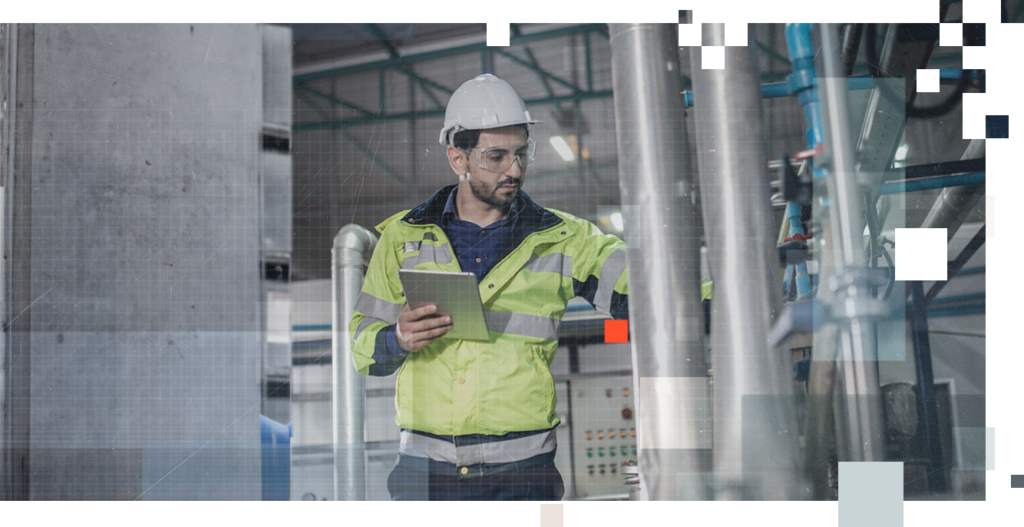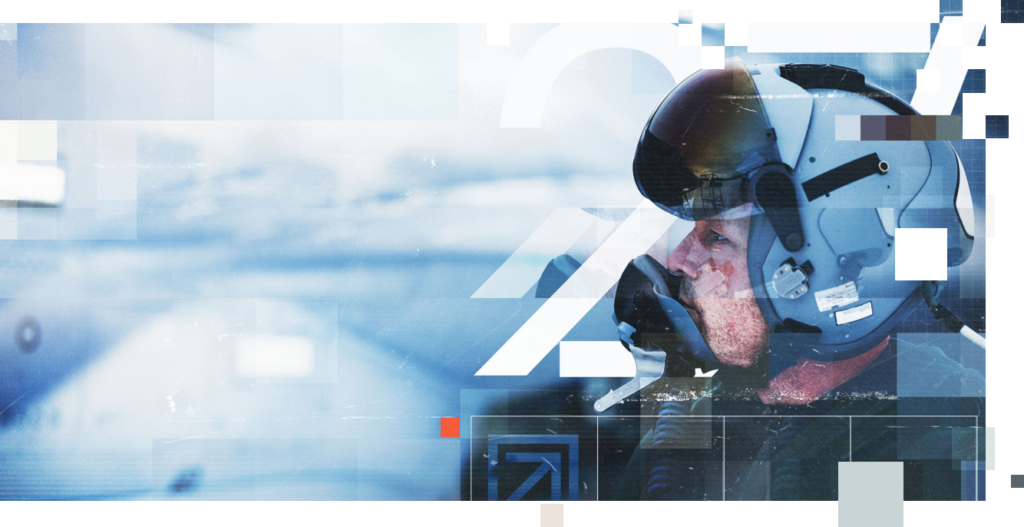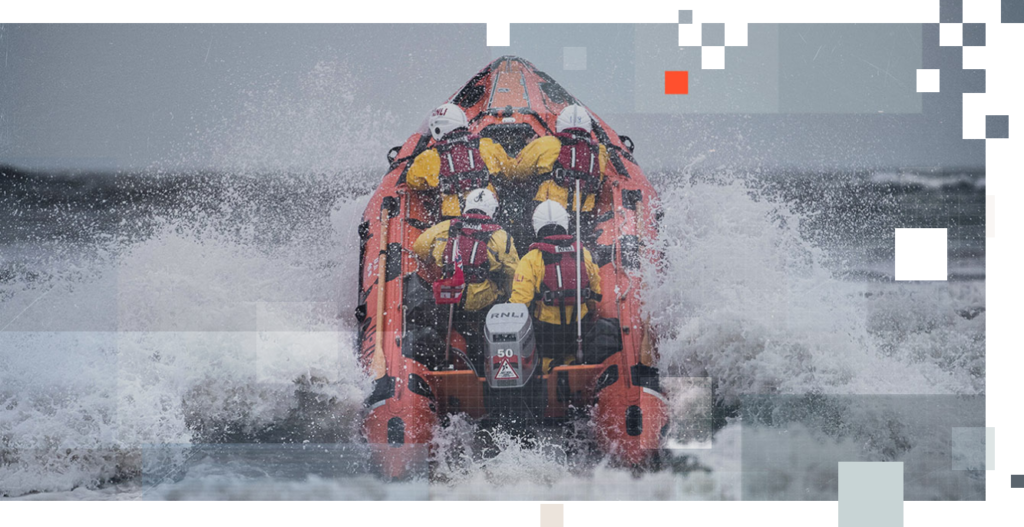Cineon has a strong track record of implementing emotion AI into practice, within sectors such as aviation, health, defence and nuclear. This capability comes from a deep understanding of human performance and behaviour in these settings.

Maintaining rigorous safety standards while managing costs and enhancing crew performance is crucial to the success of the aviation industry. Challenges like competency gaps, reliance on expensive simulators, and adherence to global safety frameworks demand innovative solutions. Cineon addresses these needs with TACET (Training Aircrew Competencies using Eye Tracking), an advanced VR training platform powered by Cineon’s proprietary AI.
Aligned with Evidence-Based Training and EASA’s CBTA frameworks, TACET identifies skill gaps, optimises training, and accelerates competency development across pilots, cabin crew, and ground staff. It empowers aviation teams to master decision-making and human factors, ensuring readiness for real-world challenges.

Improving accessibility, addressing mental health needs, and managing stress are key challenges in healthcare. ISAVE, developed with the NHS, tackles these through real-time emotional monitoring, personalised exposure therapy, and stress management.
Powered by Cineon’s proprietary AI, ELE, ISAVE dynamically adjusts therapeutic exercises to reduce stress and anxiety. ELE also enables remote healthcare, offering actionable insights into patients’ emotional states during virtual consultations.

The defence and security sectors must enhance decision-making, stress resilience, and situational awareness. Cineon’s RCAT (Room Clearance Adaptive Training), developed in collaboration with the UK Ministry of Defence, transforms training with scalable, immersive VR scenarios powered by Cineon’s proprietary AI.
RCAT adapts to provide personalised training scenarios that accelerate skill development, optimise cognitive performance, and build emotional resilience. By enabling cost-effective, safe, and high-fidelity training, it prepares personnel for the complexities of modern missions, ensuring efficiency, and safety in the field.

Safety and training in the nuclear sector are paramount, particularly in handling radiation fields, contamination, and emergencies under stress. Cineon’s INCORA platform uses VR simulations to refine responses to these challenges.
powered by Cineon’s proprietary AI, INCORA tracks emotional and cognitive states to personalise training and optimise emergency protocols. It reduces human error, enhances radiation protection, and elevates safety performance.

In recent years, companies have allocated substantial resources, with some estimates suggesting upwards of $1.4 billion annually on workforce training, particularly in areas like enhancing safety, reducing environmental impact, and improving operational skills, especially as the industry embraces the energy transition.
Cineon has worked with major oil companies like Total and BP to perform a Cognitive Task Analysis in order to understand the safety behaviours and attentional control of their refinery workers; this analysis informed the design of subsequent VR simulations that they have used for training.
Our Empathic Learning Engine (ELE), through software like INCORA, can bring several benefits to the sector by enhancing safety, efficiency, and workforce well-being:
Training and Development:
ELE can be integrated into immersive training programs to track emotional reactions to simulated scenarios. This enables personalised feedback, helping workers better handle high-stress situations in real life, leading to improved crisis management and emotional resilience.
Safety Monitoring:
Emotion AI can analyse workers’ emotional states, identifying stress, fatigue, or distraction, which are critical risk factors in hazardous environments like oil rigs or refineries. This can trigger real-time interventions to prevent accidents and improve safety protocols.
Enhanced Decision-Making:
In high-pressure situations, such as crisis management or emergency response, emotion AI can track emotional stress levels, allowing managers to identify when workers are emotionally overwhelmed, which can affect decision-making. This can help in optimising workflows and improving responses under stress.
Employee Well-being:
Long shifts and remote work environments in oil and gas can take a toll on mental health. Emotion AI tools can monitor employee well-being over time, providing insights for employers to offer necessary support and create a healthier, more engaged workforce.
By applying Cineon’s technology, the oil and gas sector can reduce human errors, enhance operational safety, and promote better decision-making and well-being across its workforce

Emotion AI can offer transformative benefits to the pharmaceutical industry, particularly in areas like patient engagement, clinical trials, and personalised medicine.
Enhancing Clinical Trials
Emotion AI can monitor patients’ emotional responses to treatments during clinical trials. By analysing the emotional state of the patient, it can provide real-time feedback on how patients feel about side effects, compliance, and overall treatment effectiveness. This can lead to more accurate trial results and improved patient retention.
Improving Patient Adherence
One of the biggest challenges in pharmaceuticals is ensuring that patients adhere to their prescribed medication regimens. Emotion AI, integrated into digital health platforms, can detect when patients are feeling stressed, anxious, or unmotivated, providing real-time interventions or reminders to improve adherence.
Personalised Healthcare Solutions
Emotion AI can help pharmaceutical companies develop personalised treatment plans by understanding patients’ emotional and cognitive responses to medications. This can lead to more tailored therapies that consider both the physical and emotional well-being of the patient, making treatments more effective.
Incorporating emotion AI into the pharmaceutical industry enables better understanding of patient experiences, optimises drug development, and ensures more effective and tailored treatments.

Nulla vitae lorem libero, a pharetra augue. Donec sed odio dui. Donec id elit non mi porta gravida at eget metus. Donec id elit non mi porta gravida at eget metus.
Maecenas sed diam eget risus varius blandit sit amet non magna. Vestibulum id ligula porta felis euismod semper. Nullam id dolor id nibh ultricies vehicula ut id elit. Maecenas sed diam eget risus varius blandit sit amet non magna. Morbi leo risus, porta ac consectetur ac, vestibulum at eros. Vestibulum id ligula porta felis euismod semper. Aenean eu leo quam. Pellentesque ornare sem lacinia quam venenatis vestibulum. Integer posuere erat a ante venenatis dapibus posuere velit aliquet. Cras mattis consectetur purus sit amet fermentum. Aenean eu leo quam. Pellentesque ornare sem lacinia quam venenatis vestibulum. Praesent commodo cursus magna, vel scelerisque nisl consectetur et. Aenean lacinia bibendum nulla sed consectetur. Aenean eu leo quam. Pellentesque ornare sem lacinia quam venenatis vestibulum. Etiam porta sem malesuada magna mollis euismod. Aenean eu leo quam. Pellentesque ornare sem lacinia quam venenatis vestibulum. Nulla vitae elit libero, a pharetra augue.

Emotion AI can track stress indicators in real time. By monitoring these signals, it provides feedback to help responders manage stress, leading to clearer thinking and better decision-making during critical moments. Cineon worked with the Met Police to prepare police officers to spot terror-related activity.
Additionally, during emergencies, managing psychological responses effectively is crucial to performance. Emotion AI can identify when responders are experiencing cognitive overload or emotional fatigue. This early detection allows for timely interventions, such as reallocating tasks or implementing stress-relief techniques, ensuring that responders maintain high levels of performance throughout an incident.
In training scenarios, Emotion AI can be integrated to provide personalised, real-time feedback. By analysing emotional responses during simulations, training can be customised to address specific challenges, better preparing responders for real-world crises. This adaptive training approach enhances resilience and ensures that emergency personnel are well-equipped to handle high-stakes situations with precision. Using these principles, Cineon developed a bespoke training solution for police drone operators used by Police Forces in the UK.
Emotion AI also improves team dynamics by monitoring the emotional synchronisation of team members. Understanding the emotional and cognitive states of the entire team can lead to better communication, coordination, and collective problem-solving, which is vital for effective emergency responses.
Moreover, the long-term exposure to stressful environments often leads to burnout or post-traumatic stress disorder (PTSD) in emergency workers. Emotion AI can continuously monitor emotional strain and offer insights that allow organisations to provide targeted mental health support. This proactive approach helps prevent burnout and ensures the overall well-being and retention of emergency personnel. Cineon’s technology is being used across 999 call centres for exactly this purpose.
Incorporating Cineon’s technology into emergency services offers the potential to reduce human error, optimise crisis response, and support the mental health of responders, leading to more effective and sustainable emergency operations.